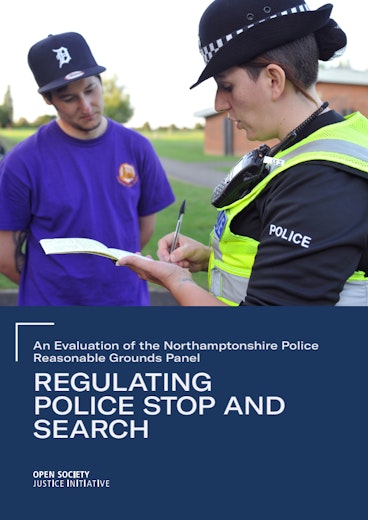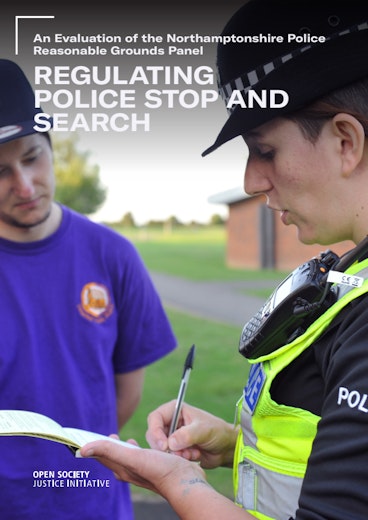Regulating Police Stop and Search: An Evaluation of the Northamptonshire Police Reasonable Grounds Panel
Police stops, including stop and search, vehicle stops, and identity checks, are one of the most common forms of adversarial contact between police and public. These encounters are notoriously asymmetric and have profound implications for police and community relations
The Reasonable Grounds Panel developed by the Northamptonshire Police in England is an innovative approach to regulating police use of their stop and search powers. The Panel engages members of the public directly in determining whether individual officers have met the legal requirements for ‘reasonable grounds’ when using their powers, and provides the basis for follow-up action where it is deemed that this requirement has not been met.
The Panel consists of two police officers and a minimum of five community members who assess the grounds or reasons given by officers for stopping and searching a member of the public. When the Panel decides that officers have not met the legal standard of conduct during stop and searches, officers are subject to an escalating scale of corrective actions, including training, coaching, and professional development. If an officer’s use of the powers does not improve, they are instructed not to conduct further stop-searches until they have completed a professional development plan.
This report and corresponding fact sheet, led by researchers at Open Society Justice Initiative and London School of Economics and Political Science, found:
- the number of stop-searches fell more sharply in Northamptonshire than other forces, including its most similar forces.
- the quality of the grounds for stop and search improved markedly.
- the percentage of stop and searches resulting in arrests doubled, climbing above the national average.
- police officers and community members who participated in the Panel spoke positively about the experience and indicated that it had improved their levels of trust and confidence in one another.

